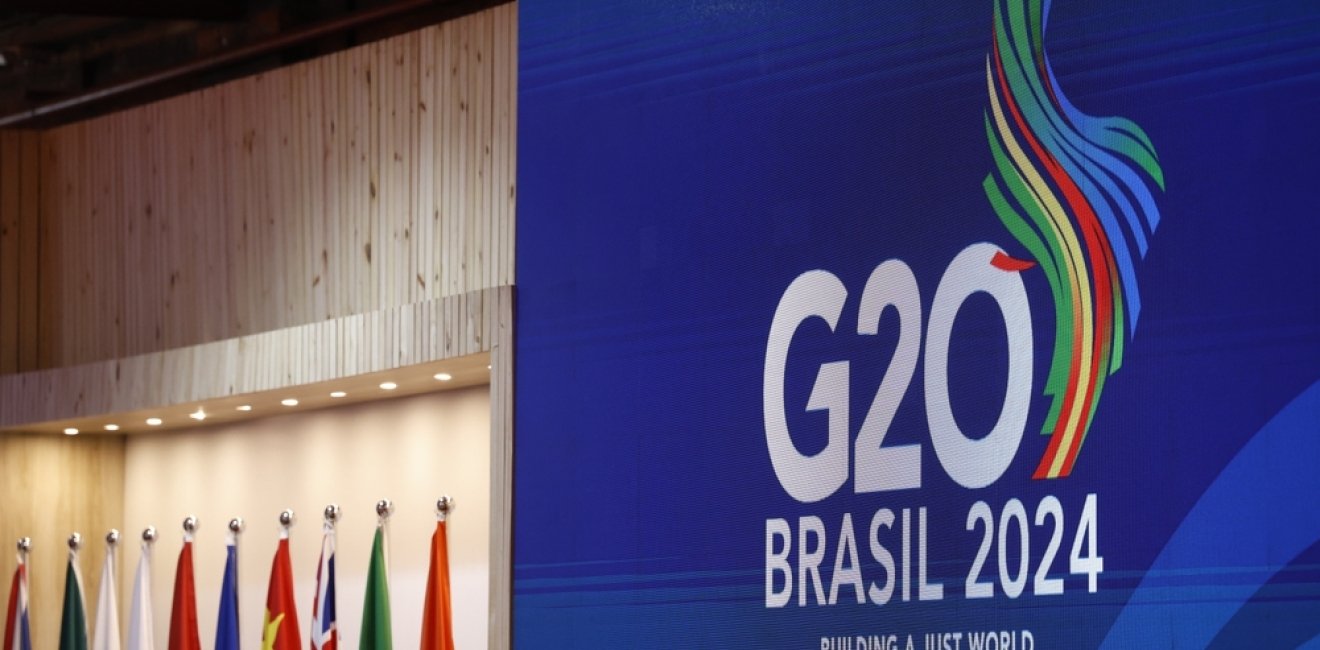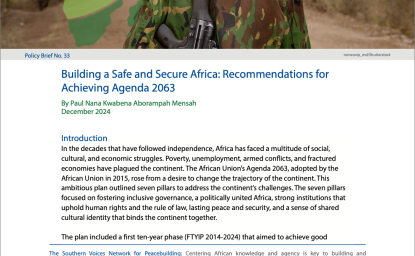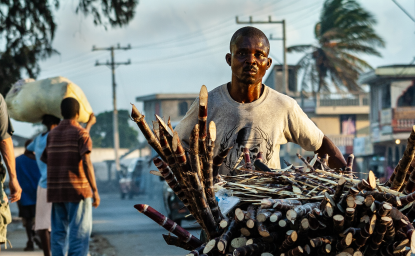The 2024 G20 Rio de Janeiro summit is the nineteenth meeting of the Group of Twenty (G20), a Heads of State and Government meeting taking place in Rio de Janeiro from 18–19 November 2024.
The G20 is an intergovernmental forum comprising 19 sovereign countries, the European Union (EU), and the African Union (AU). The group works to address major issues related to the global economy, such as international financial stability, climate change mitigation and sustainable development, through annual meetings of Heads of State and Heads of Government.
The 19 official member countries are Argentina, Australia, Brazil, Canada, China, France, Germany, India, Indonesia, Italy, Japan, Mexico, Russia, Saudi Arabia, South Africa, South Korea, Türkiye, the United Kingdom, and United States. Although there are also guest countries in every meeting.
Former Mexican Presidents at the G20
-
Vicente Fox (2000–2006): G20 initially started as a forum for finance ministers and central bank governors. Fox did not participate directly, as the involvement of national leaders began formally in 2008.
-
Felipe Calderón (2006–2012): Calderón played a prominent role in several G20 summits. In 2012, Mexico hosted the G20 in Los Cabos, with discussions focusing on global financial stability and sustainability.
-
Enrique Peña Nieto (2012–2018): Peña Nieto attended all summits during his presidency. His contributions focused on promoting trade, investment, multilateralism, and showcasing Mexico’s structural reforms.
-
Andrés Manuel López Obrador (2018–2024): Unlike his predecessors, AMLO chose not to attend G20 summits personally, including the 2021 Rome and 2023 New Delhi meetings. He delegated his representation to officials like Foreign Minister Marcelo Ebrard.
Sheinbaum's intervention in the G20
This is President Sheinbaum's first international appearance since taking office in October. Her participation in the G20 summit represents Mexico’s reengagement with major international forums after years of withdrawal under former President López Obrador. Sheinbaum criticized the rise in global military spending and advocated for increased investment in reforestation programs. She argued that allocating just 1% of global military spending to reforestation programs could significantly impact poverty, migration, and climate change mitigation.
“What is happening in our world when, in just two years, spending on weapons has grown almost three times as much as the world economy? How is it that the economy of destruction has reached an expenditure of more than $2.4 trillion? How is it that 700 million people in the world still live below the poverty line?” Sheinbaum began her participation with these questions, to give way to the general philosophy of her proposal: “I come on behalf of a generous, supportive and wise people to call on the great nations to build and not to destroy. To forge peace, fraternity and equality. Call us idealists, but I prefer that to being conformists.”
“I belong to a generation that fought against repression, authoritarianism, for social justice and democracy, and I come from a great people who decided to establish, through peaceful means, a new history for my country,” she said. “Since our political project began in 2018, Mexico has been building a new course [...]. The dogma of neoliberal faith, that the market resolves everything, has been left behind.”
“Stop sowing wars and instead sow peace and sow life”
Sheinbaum repeated one of the major slogans of her predecessor López Obrador: “For the good of all, the poor first." Furthermore, Sheinbaum highlighted the success of the Sembrando Vida program, which was presented by the Mexican government to the United States as a tool to mitigate migratory flows. “We allocate $1.7 billion each year to support 439,000 families in Mexico, and 40,000 in Guatemala, Honduras and El Salvador. In six years, more than one million hectares have been reforested, with the planting of 1.1 billion trees.” The idea includes a global commitment to the summit’s goals. “With this, we would help mitigate global warming and restore the social fabric by helping communities get out of poverty. The proposal is to stop sowing wars and instead sow peace and sow life.”
Key Highlights of Mexico's Proposal
-
Ambitious Scale: The initiative would reforest 15 million hectares an area four times the size of Denmark or equivalent to all of Guatemala, Belize, and El Salvador combined.
-
Job Creation: It aims to employ 6 million tree planters, offering livelihoods to vulnerable communities while combating environmental degradation.
-
Inspiration: Sheinbaum cited Mexico’s Sembrando Vida program as a proven model, which supports rural families with wages and technical training, resulting in the planting of over 1 billion trees and the capture of 30 million tons of CO₂ annually.
Private dialogues and meetings
President Sheinbaum held private dialogues with the representatives of France, Vietnam, Colombia, China, Canada and the United States. Likewise, she held a group meeting with representatives from Chile, Colombia and Brazil.
-
Emmanuel Macron (France): Both presidents agreed to cooperate on key issues, including water management, healthcare, and infrastructure development. They also committed to jointly promoting gender equality, emphasizing its importance as a global priority.
-
Pham Minh Chinh (Vietnam): Both leaders agreed to strengthen cultural ties between Mexico and Vietnam.
-
Gustavo Preto (Colombia): Both presidents highlighted the strength of the relationship between Mexico and Colombia, based on cooperation, trade and the deep cultural ties that unite both countries.
-
Xi Jinping (China): Both leaders discussed Mexico and China´s relationship and the investment space that the Asian country has, considering the trade agreement (USMCA) that Mexico has with North America. Moreover, Sheinbaum expressed gratitude for China’s support in aiding Acapulco’s recovery after the devastating hurricane it faced.
-
Justin Trudeau (Canada): Both leaders celebrated the strong relationship between their peoples and governments. They also acknowledged the importance and positive impact of the United States-Mexico-Canada Agreement (USMCA) on the region.
-
Joe Biden (United States): Both presidents discussed key bilateral issues. According to a statement from the White House, the two leaders emphasized the need to maintain cooperation on migration, security, and combating transnational criminal violence. They also addressed economic matters, stating the strength of the US-Mexico bilateral partnership as a key element for mutual progress. Also at the meeting, President Sheinbaum asked President Biden for information on the capture of drug-lord Jesus “El Mayo” Zambada.
-
Lula da Silva (Brazil), Gustavo Petro (Colombia) and Gabriel Boric (Chile): In the joint meeting the four presidents agreed on the importance of working together as the Latin-American progressive governments and spoke of the importance of maintaining such relationships.
Authors

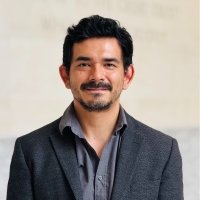

Mexico Institute
The Mexico Institute seeks to improve understanding, communication, and cooperation between Mexico and the United States by promoting original research, encouraging public discussion, and proposing policy options for enhancing the bilateral relationship. A binational Advisory Board, chaired by Luis Téllez and Earl Anthony Wayne, oversees the work of the Mexico Institute. Read more

Explore More
Browse Insights & Analysis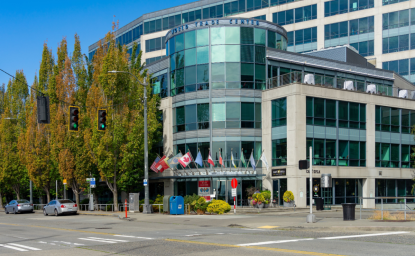
Seattle Debacle Presaged the End of the Road for Open Trade



